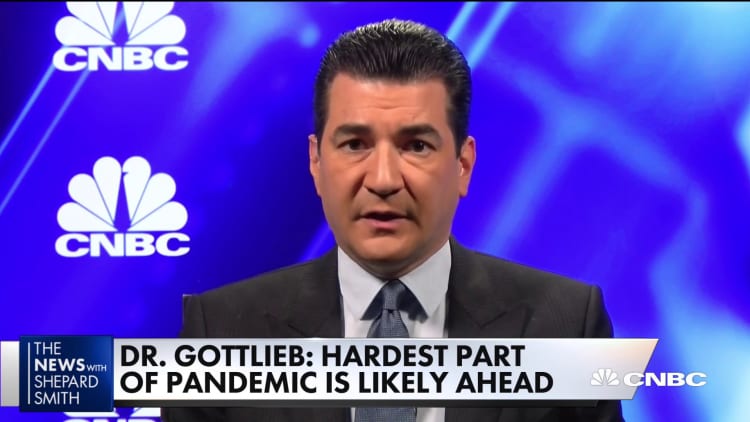Travelers from a majority of states and territories across the U.S. are now required to quarantine upon arriving in New York as coronavirus cases grow across the nation, Gov. Andrew Cuomo said Tuesday.
In a "bizarre outcome," people traveling to New York from 43 states and territories now meet the criteria to quarantine for two weeks upon arrival, Cuomo said on a call with reporters.
The coronavirus outbreaks sweeping the nation ahead of the holiday season have grown so severe that even neighboring Connecticut and New Jersey, which were able to suppress the virus after spring peaks, are reporting spikes that would land them on the list, Cuomo said on a call with reporters.
Cuomo initially adopted the coronavirus travel advisory alongside Connecticut Gov. Ned Lamont and New Jersey Gov. Phil Murphy in June to prevent travelers from states with growing outbreaks from spreading the virus in the tri-state area.
Although Pennsylvania, Connecticut and New Jersey meet the criteria to be added to the advisory, a quarantine requirement "is not practically viable" given that residents frequently travel between the states, Cuomo's office later said in a statement.
"There is no practical way to quarantine New York from New Jersey and Connecticut," Cuomo said on the call, adding that New York would help them try to suppress their outbreaks.
The travel advisory applies to anyone arriving from a state that has a positive test rate higher than 10 per 100,000 residents over a seven-day rolling average or a state with a 10% or higher positive rate over a seven-day rolling average.
The travel advisory list has grown so long that Lamont is expected to release newly adjusted metrics for Connecticut that would reduce the number of states ordered to quarantine, according to an NBC Connecticut report.
"It now applies to 43 states. Why? Because New York is doing so much better than the other states, that's what's happening," Cuomo said on the call. "The norm in the country is going up. We are not going up the way the norm in the country is going up and hence they're quote unquote quarantined from New York."
More than half of U.S. states were on the Empire State's travel advisory over the summer as America's Sun Belt states were responding to widespread outbreaks.
New York has been responding to its own increase in coronavirus cases in "red zones" that have reported higher positivity rates, or the total percent of tests returning positive, compared with other parts of the state. The updated red-zone positivity rate now stands at 2.9%, Cuomo said, "down greatly" from where it started.
"The rate of infection in our microcluster, our red zone, is lower than most states' statewide number," Cuomo said. "What we consider a priority area, a high infection rate, other states do not consider a high infection rate. In fact, most states would welcome the infection rate in our red zones."
These are the states and territories that are on New York's updated travel advisory as of Tuesday: Alabama, Alaska, Arizona, Arkansas, Colorado, Delaware, Florida, Georgia, Guam, Idaho, Illinois, Indiana, Iowa, Kansas, Kentucky, Louisiana, Maryland, Michigan, Minnesota, Mississippi, Missouri, Montana, North Carolina, North Dakota, Nebraska, Nevada, New Mexico, Ohio, Oklahoma, Puerto Rico, Rhode Island, South Carolina, South Dakota, Tennessee, Texas, Utah, Virginia, Wisconsin, West Virginia and Wyoming.



